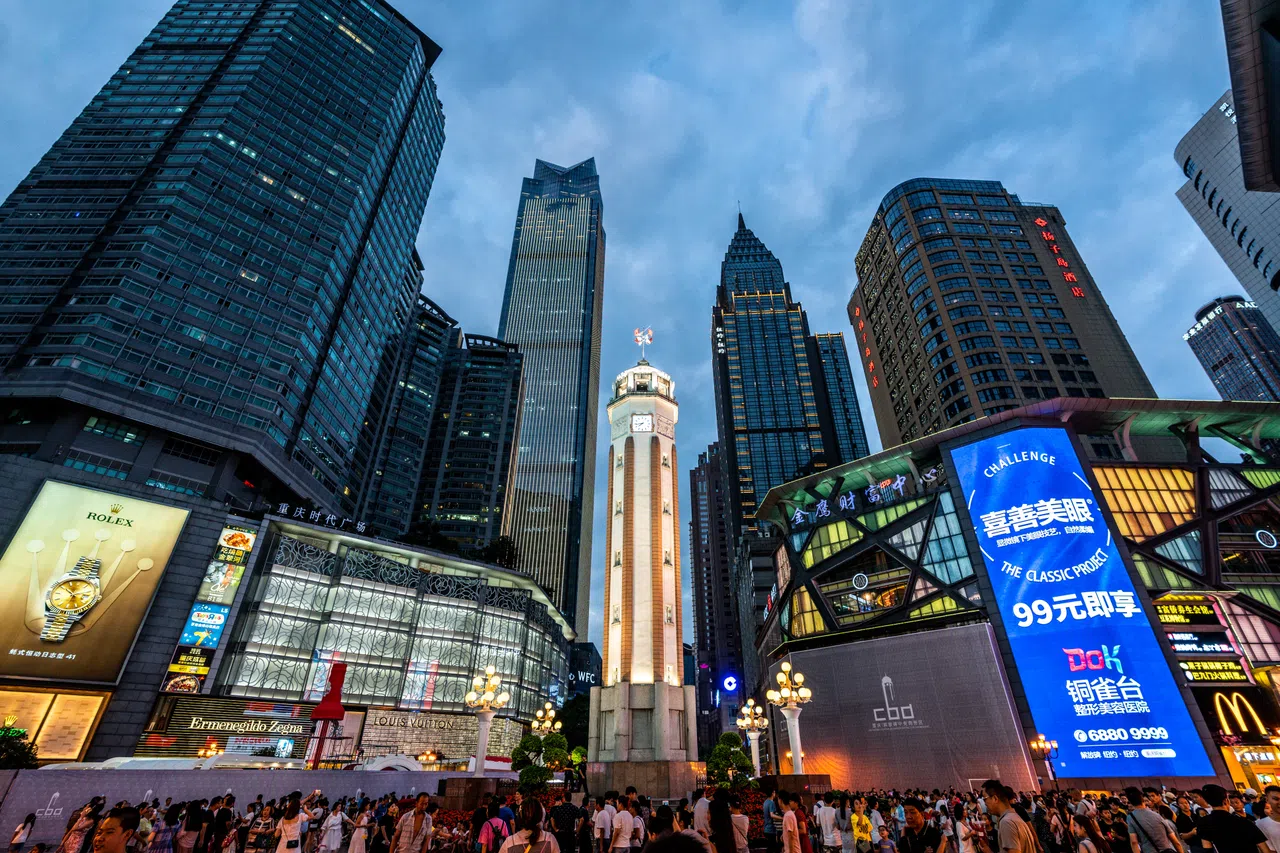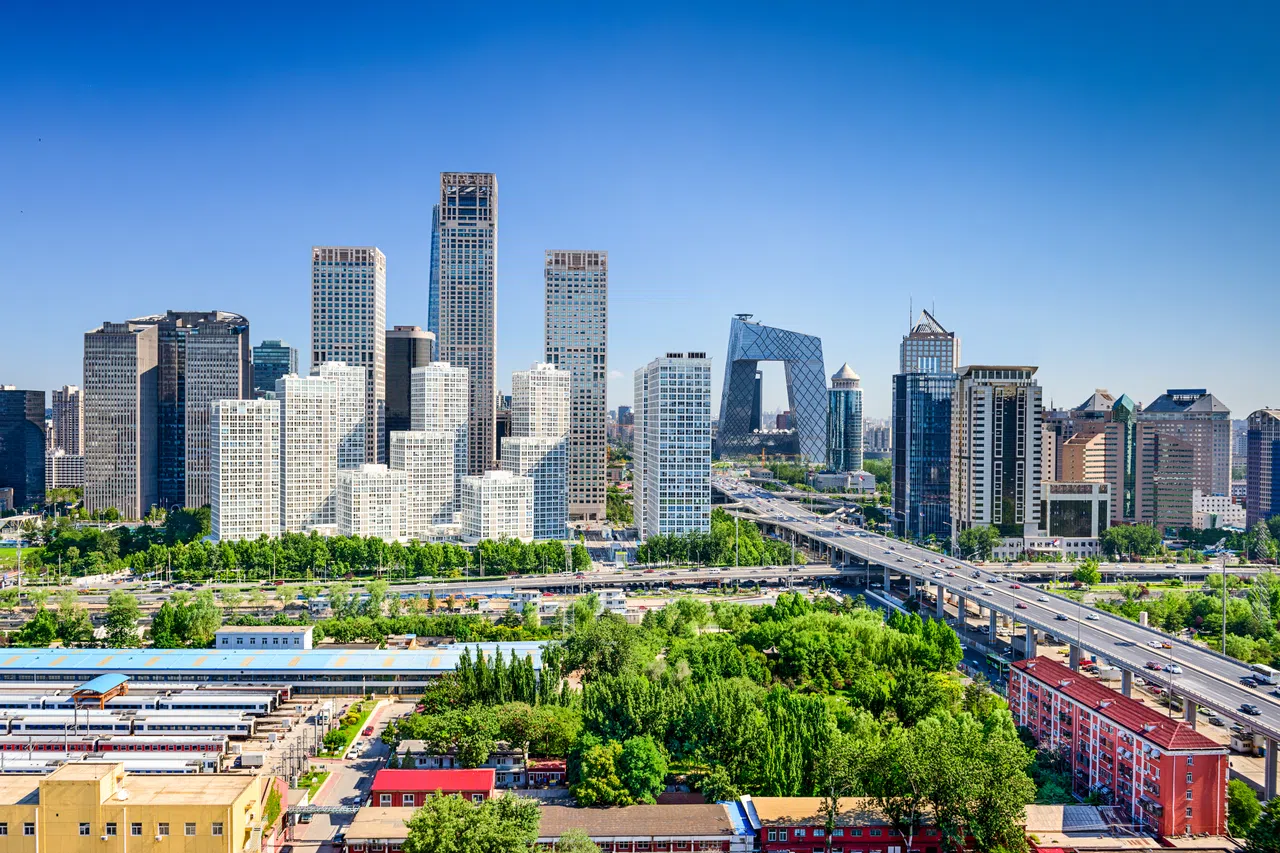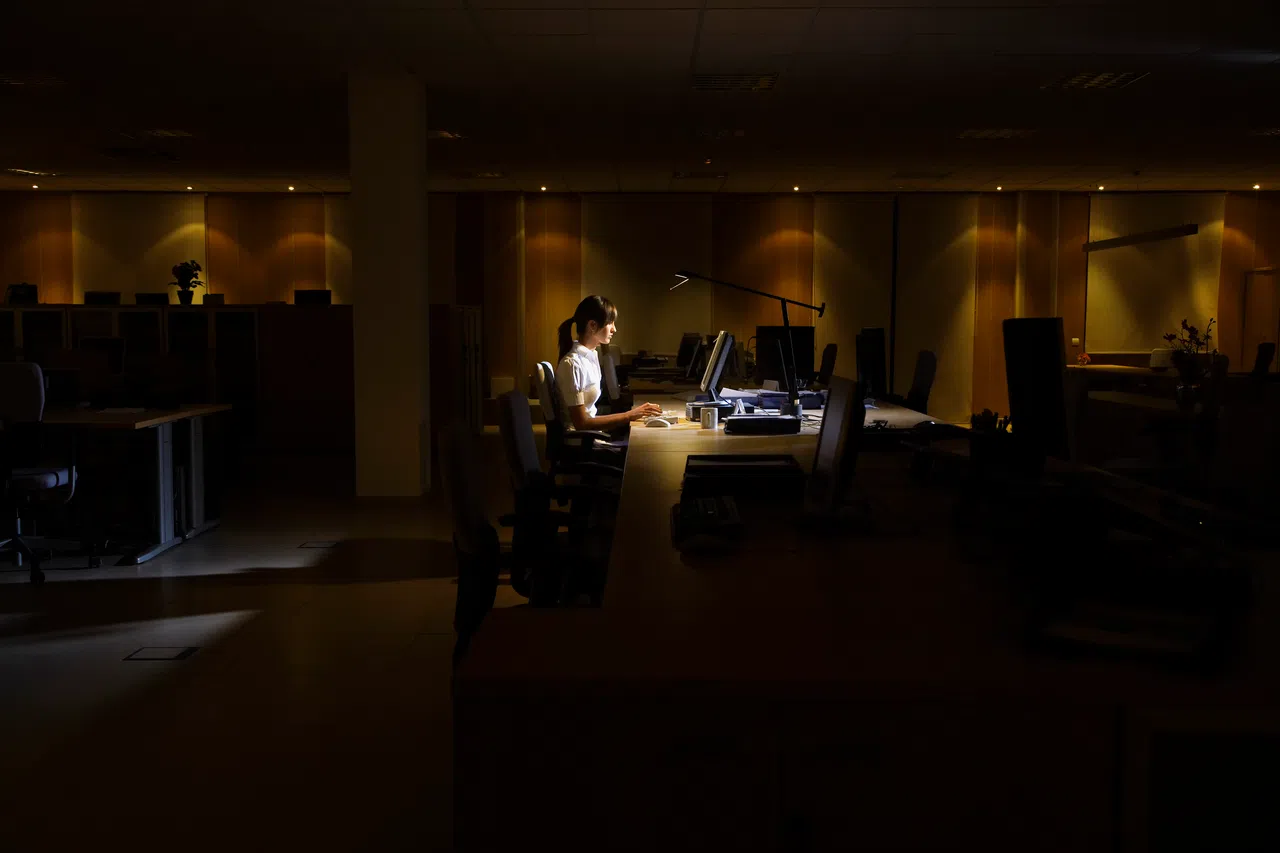China's future through the lens of the Post-90s
All eyes are on China's youths born in the affluent 1990s, are they satisfied with their lives? Are they confident in their country?

A Peking University student whose future is filled with possibilities. A finance sector white-collar newbie from Sichuan breaking into the Beijing market. And a Chongqing youth who has held eight jobs in five years. These three are part of the Post-90s generation in China who grew up in relatively affluent environments. Born between 1990 and 1999, they harbour different dreams from the previous generation. But with the slowing down of China's economy and the tightening of employment rates, they face challenges unique to their generation. Now in their 20s, these Post-90s and their happiness and disappointments, successes and failures, have come under scrutiny of the country's leaders. Are they satisfied with their lives? Are they confident in their country? Lianhe Zaobao correspondent Lim Zhan Ting meets with these three Post-90s to find out more.
In February 2019, Mr Wu Jiagang* stepped into his eighth job. The 26-year-old Chongqing native had entered the workforce a mere five years ago and that worked out to be approximately one to two jobs per year. His latest position is as a sales representative of a micro-loan company. Since his graduation from a Chongqing technical institute in 2014, Mr Wu has been a riverbank guard, bridge inspector, gym salesperson, Taekwondo coach and wellness centre masseur amongst other jobs, but none really satisfied him. He just could not settle down.
Mr Wu entered the loan industry without any experience, but he makes up for that with a gung-ho attitude. He has taken on a new identity on WeChat as "Mr Wu The Financing Guru" and cleverly packages advertisements for his micro-loan services as articles on the chat platform.
He proclaims: "I'm a newbie, a blank slate. I have nothing, only myself."
Reflecting on the seven jobs that he had held, he cannot help but sigh. "Landing a mediocre job in Chongqing isn't difficult; it is the better ones that are tough," he laments.
While working as a masseur, he earned 6,000 RMB (S$1,200) a month. This is the average pay in Chongqing, but he reveals that it is barely enough to live on: "You need at least 10,000 RMB a month to live in Chongqing. Or else, where will the money come from to have a girlfriend, to get married, to eat and travel, and basically to live?"

Mr Wu's constant job-hopping stems from his desire to lead a better life, but this also means his income has been unstable. Still single, he worries this will cause potential partners to shun him. It is also a nagging concern of his parents.
When asked to rate his satisfaction with life at the moment, he evaluates it as: "It is only a pass."

Staying afloat
Beijing floaters (known as beipiao in Mandarin) are people who attempt to stay afloat in bustling capital Beijing. Originally from other provinces, they have migrated to Beijing to chase their dreams.
More than 1,500km away from Chongqing, in the Chinese capital of Beijing, 28-year-old beipiao Liu Yue* works at a securities firm as its project manager. Despite having a stable job, he still worries over the decline in projects over the past nine months.
He reveals that he had high hopes for the finance sector when he first entered the industry, but China's economy has been hit with massive challenges recently. Since the middle of 2018, the company has clinched fewer deals, which has affected salaries.

Although he is a so-called "white-collar professional", Mr Liu admits that his monthly salary of 10,000 RMB is a far cry from his ideal of 25,000 RMB. Although his workload has reduced due to the downturn, Mr Liu is not slacking off.
Looking to the future, he says: "The outlook of the economy is not getting better in the short term. I intend to upgrade myself by attaining some professional certificates."
Top jobs
The most coveted jobs in the civil service go to the top university graduates, who are earmarked for leadership roles in the Communist Party as they rise up the ladder. However, such jobs have been cut in recent times.
It is not only those who are already in the workforce who worry about their career prospects. The possibility of unemployment bothers students too. Originally from Hebei but now residing in Beijing, Ms Wu Jia, 24, is a master's student at the prestigious Peking University. She has two more years of studies before entering the workforce, but the pressure of what comes after graduation is slowly building up.
She reveals that her family hopes that she becomes a civil servant. Even though her academic pedigree means she will be highly sought after by employers upon graduation, it is obvious that competition has tremendously increased in recent years. From her interactions with graduates, she understands that, in the past, Peking University students had a one-in-two chance of being selected as a civil servant by central government departments. Now, it's probably a one-in-four chance.
To be a civil servant or to work in a dot-com? That is the question on Ms Wu's mind.
As for securing a decent job, she admits that she is "not confident". While she wants to utilise her expertise in phonetics at a dot-com, she also acknowledges that with the downturn of China's economy and the rise in retrenchment rates at dot-coms, the dot-com could become the "dot-gone".
Ms Wu, Mr Liu and Mr Wu may be leading very different lives, but they have one thing in common-though their living standards are not mediocre, they are caught in a whirlpool of uncertainties and are dissatisfied with their lives.
Generation gap
In a bid to cut costs, Mr Liu and Ms Wu have no interest in buying a house in Beijing. Ms Wu explains: "Buying a house is out of the question, as many people won't be able to afford one. Everyone will then resort to renting. It's only a matter of time that renting will become the norm. More people will choose to rent as a way of life."
"Currently, the easy paths have been taken and uncharted territories lie ahead. With the China-US trade war, the world's losing its faith in China. If our kids want to study in the United States, we are faced with hostility. What the current generation is facing now is far worse than what the young people of the 1980s and 1990s faced." - Professor Yu Hai
In an interview with Lianhe Zaobao, Professor Yu Hai, 67, of Fudan University's Sociology Department, says: "The youths now don't have good opportunities like we used to have."

Back when he was attending university in the 1980s, the economic reform had just started and China was opening up to the rest of the world. It did not matter that the young were poor; they were filled with aspiration and hope, living by the mantra of "just keep moving forward". In the 1990s, China's economic growth made a tremendous leap and everyone was looking to improve their lives. This propelled the youths to greater heights. By the 21st century, within 10 years of rapid growth, China had become the world's second-largest economy. The Chinese then were optimistic and confident.
Prof Yu notes: "Currently, the easy paths have been taken and uncharted territories lie ahead. With the China-US trade war, the world's losing its faith in China. If our kids want to study in the United States, we are faced with hostility. What the current generation is facing now is far worse than what the young people of the 1980s and 1990s faced."
Mr Liu agrees: "Comparing my material comforts and education level with that of my parents, I'm better off. But I find myself worrying even more, especially with the tough competition that living in the city entails."

Overtime and side hustles
According to a report by the National Bureau of Statistics of China released in March 2019, a day in the life of a Beijing youth typically comprises 10 hours of work and two hours of commute. Even on rest days, they work an average of 7 hours and 42 minutes. The relentless nature of work has become such a reality that netizens and certain state media have rallied to "stop the norm of working overtime".
"I have a classmate who's married and has kids, but I'm studying in Peking University. I've just embarked on a road with endless possibilities, but it's the end of the road for her." - Ms Wu Jia, 24-year-old Peking University master's student
Some young people are even holding more than one job. According to research by Tsingyan Research and Nanjing University Zijin Media Think Tank last year, there are at least 70 million "amphibious youths" who hold a full-time job and have a side hustle. These side hustles include running a WeChat business, owning a Taobao store, being a ride-share driver, giving tuition and so on. Close to half of the respondents explained this was because their full-time job was not paying enough.

For beipiaos such as Ms Wu and Mr Liu, in spite of life's challenges and worries, they still believe they have the power to change their lives with hard work.
Ms Wu explains: "Unless you're the descendant of aristocrats, you can only change your destiny through blood, sweat and tears. It's the same with me. If I didn't work hard, I may still be in a small town in Henan. I have a classmate who's married and has kids, but I'm studying in Peking University. I've just embarked on a road with endless possibilities, but it's the end of the road for her."
Close scrutiny
In 20 years, Post-90s like Ms Wu, Mr Liu and Mr Wu will become important players in society. China's future development hinges on their successes and failures, and their faith and trust in their homeland. Inevitably, this generation is under close scrutiny of the national leaders.
In January 2019, Chinese President Xi Jinping, also General Secretary of the Communist Party of China, emphasised the importance of the younger generation's ideological and political work at a conference for the prevention and mitigation of major risks. He highlighted the importance of moulding the worldview, life values and moral system of youths, so that they can live and breathe the ideology of socialism.
A Communist Party member in his 20s shared that the thoughts and feelings of young people are taken very seriously. For instance, there are worries that they are under tremendous stress, which could in turn lead to a buildup of negative feelings and dissatisfaction towards the nation's leaders.
He adds: "Economic depression and the property bubble may cause a loss in resources and talent. Middle-class families may consider immigrating. It will be a great loss if China fails to retain its young talents."
The rise of individualism
With increasing affluence and Western influences, China's youth are increasingly individualistic, which is a new challenge for its leaders. People are quick to judge and less submissive to authority. In a report analysing the political attitudes of the Post-80s, Dr. Shan Wei, Research Fellow at the East Asian Institute, National University of Singapore, writes that this situation is commonplace in any society that is becoming wealthier and enjoying economic growth and modernisation.
The report cites four waves of The Asian Barometer Survey done in 2002, 2008, 2011 and 2015, and finds that the Post-80s of China are the least nationalistic; they do not trust the government as much as the Post-70s, 60s and 50s do.
Dr. Shan elaborates that Chinese society over the past few decades has changed drastically. Young people's understanding of the world and China's position in it has changed. They are more confident and less "submissive", he says. This is the reality that national leaders will have to face.
Beyond the classroom
In light of the needs and wants of the younger generation, Chinese authorities have attempted to listen and roll out social policies accordingly, while at the same time reiterating the importance of aligning the public's thinking to their ideologies.
In March 2019 at a national lianghui (annual meeting of the National People's Congress and the Chinese People's Political Consultative Conference), Chinese Premier Li Keqiang announced that 100 billion RMB will be taken from the unemployment insurance fund for skills upgrading courses for over 15 million people. This was to reassure young people who were worried over unemployment and increase the employability of university graduates.
That same month, President Xi spoke at a teacher's conference about the importance of ideological and political lessons, which should "begin when the student is just a child" to improve critical thinking.
In fact, promotion of these political ideologies has gone beyond the classroom in recent years. A television game show titled Studying Xi in the New Era (《新时代学习大会》) and an interactive phone app called "学习强国" ("learning to become a stronger country") are some examples. Documentary films, such as Amazing China, which depicts the rise of a great China, have also been released in hopes of connecting with the younger generation.
Pertaining to big ideas like the China dream or President Xi's thoughts on socialism, young respondents are familiar with these concepts, but differ in their levels of understanding.
Mr Wu says he has "seen it on a billboard along the highway" but did not bother to understand it, while Mr Liu says bluntly: "It's propaganda. They do not address practical needs. I'm more concerned with our nation's economic developments, monetary policy and so on."
Ms Wu, on the other hand, has a keen interest in politics. Even though she admits that these ideologies have no real impact on her life, the innovative means by which they are promoted could increase national cohesion.
She says: "I'm not particularly interested in documentary films like Amazing China. I know it is a necessary move, but I wish it had a more realistic and objective depiction. The Chinese are more than willing to accept our own deficiencies."
On political education, Ms Wu feels that only a good teacher will be able to deliver political messages effectively. She adds: "Most students are not receptive and will skip lessons. They've already heard these messages over and over; it doesn't create a real impact on their lives at all."
High hopes
Because "China is dominated by a single party, the authorities have great power to keep economic problems under control". - 28-year-old beipiao Liu Yue
As a sociologist, Prof Yu observes that the key to successful implementation of political ideology lies in the alignment of speech and actions. He explains that officials and schools have always pushed for students to think independently and have an innovative spirit. However, in real life, young people are often asked to "sanitise" the things they put online; they don't enjoy freedom in their online presence.
When asked to rate his faith in China's development in the future, Mr Liu gives a score of 60 out of 100. He explains that although short- to mid-term concerns, like the property bubble, the China-US trade war and the overdraft of purchasing power, worry him, he believes that in the long run, because "China is dominated by a single party, the authorities have great power to keep economic problems under control".
"In this multifaceted world, if we were to practise a centralised dogmatic style of management, especially in the dissemination of political ideologies, the effects may backfire. I believe young people should have great aspirations. Not only in their own career advancements, but also in society's future. They should be able to hold a discussion on national issues." - Professor Yu Hai
On the other hand, Ms Wu believes that as long as stability is maintained, there is nothing much to worry about China's development. It is also unlikely that other countries will want to severely clash with China.
Prof Yu says: "I guess we're over-worried for the younger generation. In this multifaceted world, if we were to practise a centralised dogmatic style of management, especially in the dissemination of political ideologies, the effects may backfire. I believe young people should have great aspirations. Not only in their own career advancements, but also in society's future. They should be able to hold a discussion on national issues."
Speaking with conviction, Prof Yu concludes: "Don't worry too much. I may criticise the young people, but I still have high hopes for them. I really do."
(*Names have been changed as per interviewees' request.)
This article was first published in Lianhe Zaobao on 31 March 2019.


![[Big read] When the Arctic opens, what happens to Singapore?](https://cassette.sphdigital.com.sg/image/thinkchina/da65edebca34645c711c55e83e9877109b3c53847ebb1305573974651df1d13a)


